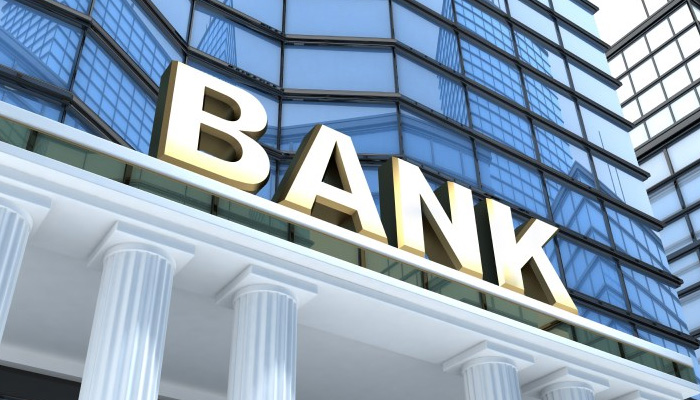Banking sector’s profit falls to Rs39bln in 2Q2018
KARACHI: Banking sector’s profitability fell three percent year-on-year to Rs39 billion during the April-June quarter mainly due to pension and compliance related expenditures, a brokerage reported on Friday.
Net interest income (NII) of the listed banks, except Summit Bank, rose eight percent year-on-year to Rs124 billion in 2Q2018, led by higher interest rates and improved deposit mix, according to Topline Securities.
The State Bank of Pakistan (SBP) raised policy rate by 175 basis points to 7.5 percent since January, which supports NII going ahead.
“We anticipate SBP to increase interest rates by further 225 basis points to 9.75 percent by 2020,” analyst Umair Naseer at the brokerage said.
Mid-tier banks remained outperformers as they posted above average NII growth during the quarter. Amongst large banks, MCB Bank and National Bank posted NII growth of 13 percent.
Total provisioning expense of the sector was up five percent as banks continued to see major recoveries in non-performing loans (NPLs) as banks booked provision reversals. United Bank (UBL) and National Bank continued to book higher provisions charge against NPLs as they booked provision expenses of Rs2.3 billion and Rs2.6 billion, respectively, during the second quarter.
Non-markup expense of the banking sector was up 14 percent to Rs102 billion as big banks like UBL and Habib Bank registered higher cost amid pension charges and compliance cost.
UBL booked additional pension charge of Rs2 billion during 2Q2018, whereas HBL increased compliance cost on the back of ongoing concerns on its international operations.
“This restricted bottom-line growth of the sector,” Naseer added.
Non-markup income was down five percent year-on-year to Rs48 billion, driven by lower capital gains registered by banks on account of lower gains on equities and Pakistan Investment Bonds.
In April-June, effective tax rate of the banking sector declined to 41 percent as compared to 44 percent in the corresponding period a year earlier after the abolishing of super taxation.
-
 Meghan Markle Showcases Princess Lilibet Face On Valentine’s Day
Meghan Markle Showcases Princess Lilibet Face On Valentine’s Day -
 Harry Styles Opens Up About Isolation After One Direction Split
Harry Styles Opens Up About Isolation After One Direction Split -
 Shamed Andrew Was ‘face To Face’ With Epstein Files, Mocked For Lying
Shamed Andrew Was ‘face To Face’ With Epstein Files, Mocked For Lying -
 Kanye West Projected To Explode Music Charts With 'Bully' After He Apologized Over Antisemitism
Kanye West Projected To Explode Music Charts With 'Bully' After He Apologized Over Antisemitism -
 Leighton Meester Reflects On How Valentine’s Day Feels Like Now
Leighton Meester Reflects On How Valentine’s Day Feels Like Now -
 Sarah Ferguson ‘won’t Let Go Without A Fight’ After Royal Exile
Sarah Ferguson ‘won’t Let Go Without A Fight’ After Royal Exile -
 Adam Sandler Makes Brutal Confession: 'I Do Not Love Comedy First'
Adam Sandler Makes Brutal Confession: 'I Do Not Love Comedy First' -
 'Harry Potter' Star Rupert Grint Shares Where He Stands Politically
'Harry Potter' Star Rupert Grint Shares Where He Stands Politically -
 Drama Outside Nancy Guthrie's Home Unfolds Described As 'circus'
Drama Outside Nancy Guthrie's Home Unfolds Described As 'circus' -
 Marco Rubio Sends Message Of Unity To Europe
Marco Rubio Sends Message Of Unity To Europe -
 Savannah's Interview With Epstein Victim, Who Sued UK's Andrew, Surfaces Amid Guthrie Abduction
Savannah's Interview With Epstein Victim, Who Sued UK's Andrew, Surfaces Amid Guthrie Abduction -
 Piers Morgan Supports Bad Bunny As US Lawmakers Seek Action
Piers Morgan Supports Bad Bunny As US Lawmakers Seek Action -
 Jennifer Love Hewitt Reminisces About Workign With Betty White
Jennifer Love Hewitt Reminisces About Workign With Betty White -
 Hilarie Burton Reveals Valentine's Day Plans With Jeffrey Dean Morgan
Hilarie Burton Reveals Valentine's Day Plans With Jeffrey Dean Morgan -
 Cardi B Compares Her Fall To Government At Las Vegas Show
Cardi B Compares Her Fall To Government At Las Vegas Show -
 Harry Styles Silently Deleted Instagram App
Harry Styles Silently Deleted Instagram App




